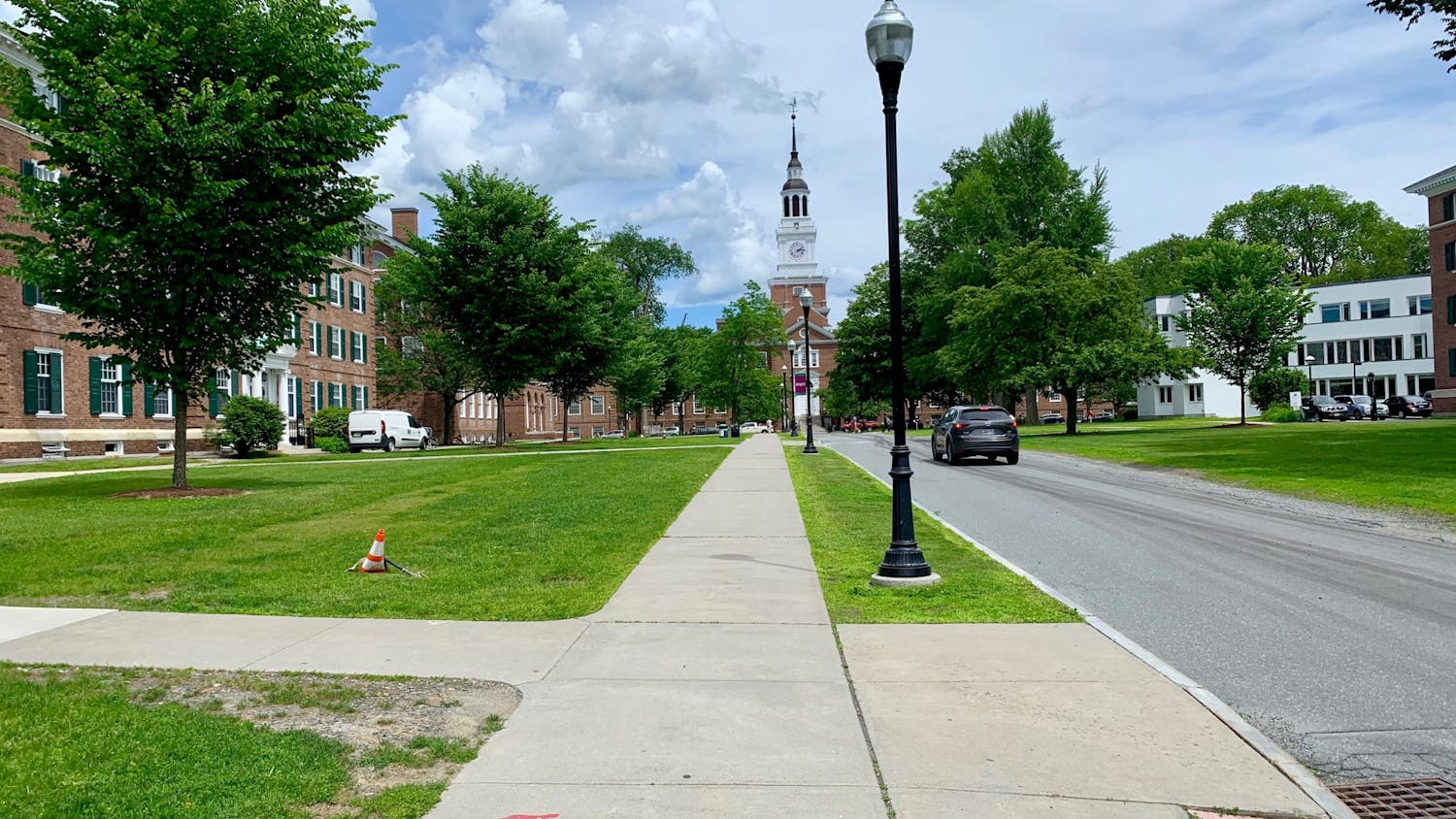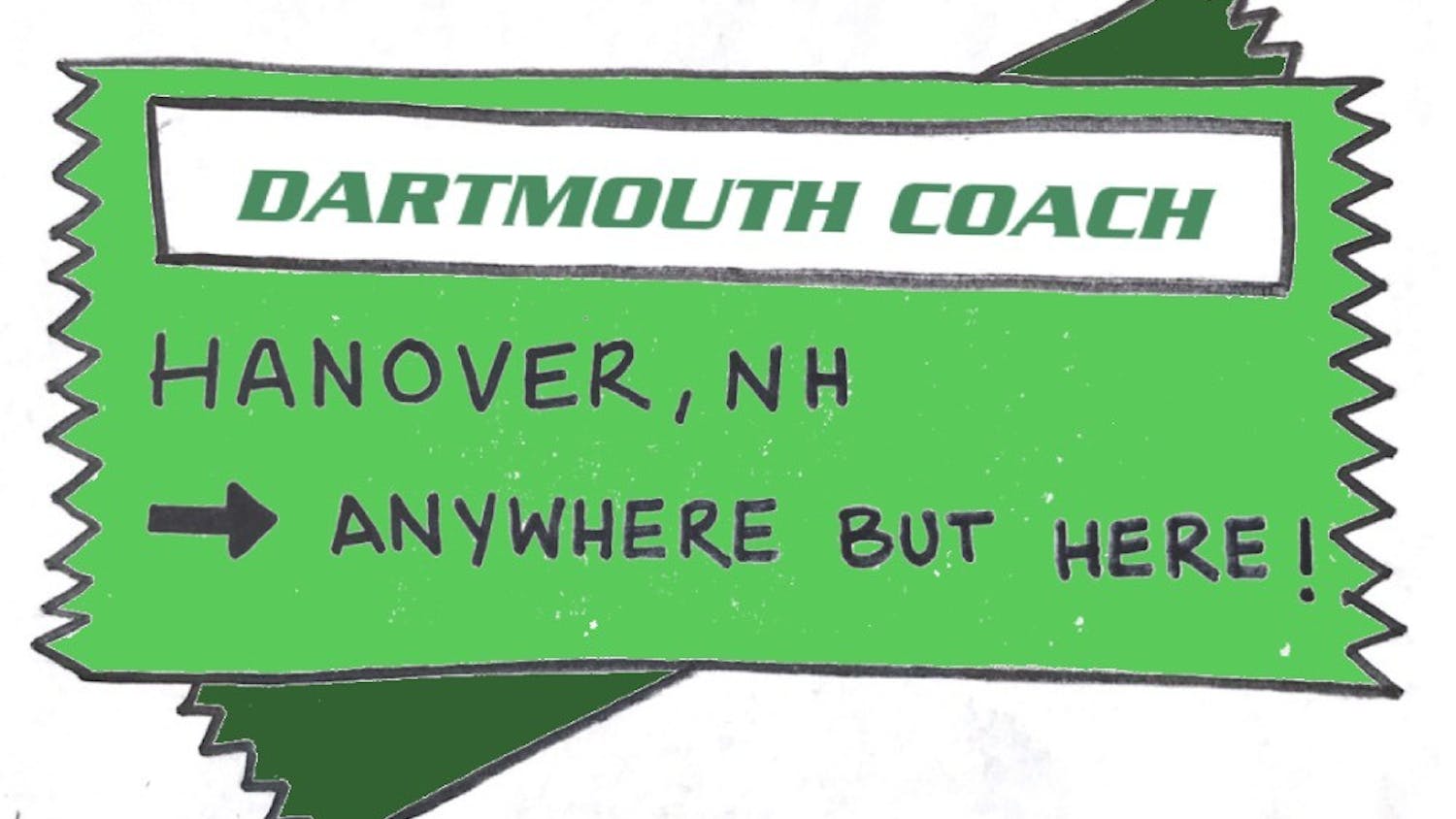Sometime around my Webkinz and Limited Too phase of the early 2000s, I developed a strong belief in the power of fortune cookies. I swore by them. Every time my family would dine at our favorite Chinese restaurant, I’d scarf down my food and count down the minutes until the check — and with it a bundle of fortune cookies — would arrive. As my family went around sharing their fortunes, I clung tightly to mine in the hopes that it would provide a glimpse into my future.
My faith in fortune cookies seemed harmless until one pivotal night. Having just finished our meal, we received our well-deserved cookies. Without manners, I jumped up to snag the “best looking” (and by that I mean least smooshed) cookie. I snapped the dessert in half, ripped the paper out and suddenly felt tears stream down my face.
“The cookie is sleeping. Come back later.”
I couldn’t believe the words sprawled on the paper. Where was my fortune? What did “come back later” even mean? How was I expected to play at recess the next day without some guidance? All of these unknowns scared me, and I felt betrayed by the cookie for not giving me some certainty about my future. For several years after, whenever my siblings would tease me about the “cookie incident,” I would swiftly burst into tears.
At Dartmouth, it seems like everyone knows exactly what they’re doing with a clear vision of purpose. That’s why we love to talk about “floating duck syndrome” on First-Year Trips. We want to prepare incoming freshmen for being surrounded by peers who tirelessly — and seemingly effortlessly — complete a double major, participate in every extracurricular, snag a prestigious internship and still manage to rage on every on-night. We work hard, and we want everything to go as planned. While I’ve found it easy to talk with friends about imposter syndrome and fears of inferiority, I’ve found it much more difficult to talk about another anxiety: the fear of uncertainty.
For me, this fear is particularly strong during times of transition. There are two periods of significant change in my life at Dartmouth that instigated this fear: just before leaving to study abroad for my sophomore winter, and preparing for my junior fall off term at the end of my sophomore summer.
My sophomore fall was filled with the “highest of highs and lowest of lows,” as verified by the caption of my Instagram post marking the end of the term. Although I felt less like an aimlessly wandering freshman and more like an experienced upperclassman, my newfound confidence and sense of place in Hanover made me more anxious to leave for the winter. I was terrified that the places and people that previously felt like home to me would no longer be as welcoming when I returned in the spring. Would Dartmouth move on without me?
I won’t bore you with the “I had such a great time abroad” spiel. But I will say that adjusting to living with a host family and only communicating in a language I hadn’t spoken since my senior year of high school was a lot easier with a great group of Dartmouth students who were all going through the same experience. While abroad, I was so scared of Dartmouth changing that I didn’t think about whether or not I would change alongside Dartmouth. By the time I returned to campus in the spring, social groups had split and intermingled, new Collis hacks were discovered and my favorite season had come and gone with little more than a few lingering snow banks to show for it. As I adjusted to these changes, I found myself investing in different friendships and searching for new adventures. I unconsciously brought back to Dartmouth a renewed excitement for being thrown out of my comfort zone — an excitement reminiscent of those first few weeks of freshman fall. I had changed without even realizing it.
My sophomore summer also had many highs and lows, but for very different reasons. I lived off campus with some of my best friends, survived the emotional rollercoaster of recruiting and got to break out some brand new, flashy flair. Taking the summer at face value, it should have been the best time of my life. But I also became very aware of values and priorities among friends starting to diverge, recruiting marking the end of “exploring a liberal arts education” and the beginning of “figuring out what I’m going to do with my life” and yet again, facing a scary transition.
At the end of the summer, I packed up my belongings and said goodbye to the comfort of being surrounded by friends in a place that was starting to feel more and more like home. I arrived in D.C. for my off term knowing fewer than five people in the city and living in a private room of an Airbnb. As I unpacked and tried to avoid making eye contact with the abstract painting of Frankenstein hanging in the common room (always vet your Airbnb!), I realized how alone I was. Unlike studying abroad, I didn’t have an embedded community to rely on. Being alone was terrifying, but it was ultimately one of the greatest lessons Dartmouth ever taught me.
My off term ended up being a highlight of my time in college. I developed meaningful relationships with alumni and current Dartmouth students that were off in D.C., I explored the ins-and-outs of a new city and most importantly, I learned how to feel comfortable by myself. Whether my sophomore summer self would’ve approved or not, I could feel myself embracing the transition to adulthood. And it no longer scared me.
During both of these periods of transition, I was terrified of the unknown. I was scared to go to new places without the comfort of Dartmouth to support me, and I was afraid of how these moments of change would shape my sense of self and my place at Dartmouth.
Right now, the Class of 2020 faces an extremely unusual transition, one with much less certainty than we ever would have imagined. As we prepare to leave the shelter of Dartmouth and embrace postgraduate life, so many unknowns remain: new job start dates, how long we will be living in our childhood rooms wearing old Kesha T-shirts (is that just me?), when we will see our closest friends again and how we will adjust to entering the real world without ever getting to say goodbye to the last moments of our youth. Right now, our fortune cookies are sleeping. Our futures are uncertain. The transition is terrifying.
I wish I had some words of wisdom, some insight into the future to assure us that everything will work out exactly as we planned. I don’t. All I can say is that, if there is one thing I have learned from times of transition, it’s not to underestimate how valuable they can be. Even if the process is painful. Dartmouth is dynamic and ever-changing, and so are we. While we may not always grow in the same way, that doesn’t have to be such a bad thing. When I next return to Dartmouth, whether it’s for Homecoming, our “graduation” or a weekend escape from adulthood, I’m excited to see the ways in which Dartmouth — and I — have changed.




